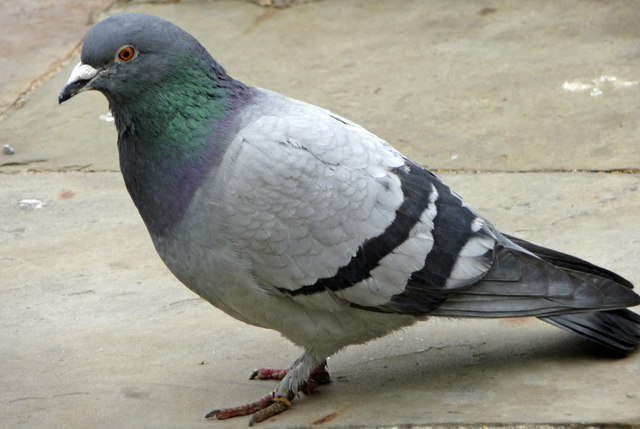When it comes to pest control in London, we can all safely say that pigeons and the mess they leave behind is the first thing that comes to mind. Over the last fifty years, the pigeon population in London has grown rapidly out of control. This is often attributed to the rise in takeaways and the leftover food that people discard or drop onto the street; combined with mass urbanisation though, these conditions have given the common pigeon the perfect environment in which to thrive.
The pigeon benefits in many ways from living in the city. With plenty of tall buildings in which to hide away from predators, and an overabundance of litter and rubbish bins to forage through, there is no denying that the “flying rat” will be around for many years to come. Dismissing culling as an inhumane deterrent, there are many ways to prevent and regulate pest control in London.
Listed below are our top three reasons of how to avert pigeons from destroying your home or work surroundings.
Avoid feeding pigeons
Feeding pigeons does carry some poetic connotations with it. We have all seen the lovely old couple, feeding the birds left over breadcrumbs on the village green. But in reality, over feeding birds leads to a number of problems.
- Faeces – What goes in must come out. Pigeons eat a lot, so in turn they excrete a lot, and this will be whenever and wherever they feel nature call.
- Having bird excrement cover the side of your house, roof, inside of your loft, car bonnet or anywhere else the birds are nesting, means everything will eventually be coated in unsightly dung.
- The poop itself is acidic and causes respiratory problems, as the birds use their dung to build nests within lofts and chimneys. Blocked chimneys can force carbon monoxide back into the building, possibly becoming a fatal problem to anyone who inhales the toxic gas.
Close off possible entrances
With pest control in London getting out of hand, shutting down entrances will prevent birds from roosting, nesting and breeding in unwanted places. A pigeon can fit through a space as small as 20mm, so be sure to lock off any possible entry points.
- Seal off any exposed roof eaves. This can be done with roofing felt, a thick curtain-like material or any waterproof adhesive that will fill the hole.
- Replace missing roof tiles so that the bird cannot crawl under the roof and nest.
- If the space is larger than 20mm, try using bird netting, as this will stop the bird from entering the environment or being able to roost.
- Anti-roosting spike strips are always a great way to stop pigeons from nesting in unwanted places. Used by schools, places of work and industrial units, this is the safest and cheapest way to stop the birds from causing a mess.
- If money really is tight, then why not tie a piece of string along where the birds perch. This stops the pigeon from being able to balance itself and leaves the bird unsettled.
Scare tactics
Scaring off birds all sounds a bit ‘Vicar of Dibley’, but it really is the most humane way you can deter pigeons from nesting without causing harm. Pigeons are quite intelligent birds, and have the ability to remember a situation; think of racing pigeons. So by scaring off the birds, they will instinctively remember not to return back to the same place and will move on.
- Try spraying the birds with a garden hose. This will make them feel uncomfortable, cold and the noise will panic the birds into flying away.
- Ultrasonic devices are also good for scaring off pigeons. The birds’ natural enemy is a bird of prey. The sonic device will emit sounds that resemble large birds and will discourage them from roosting in their normal place. Try putting the device as close to the birds’ nest as possible.
- If money is tight, try hanging up a mirror in the area where the birds nest. The reflection and movement will scare the birds into moving on.
- Garden statues or replica owls with reflective eyes are a great way to scare pigeons away too.
For more information on how to eradicate pests, or to enquire about pest control contracts in London, please get in touch with us today.






